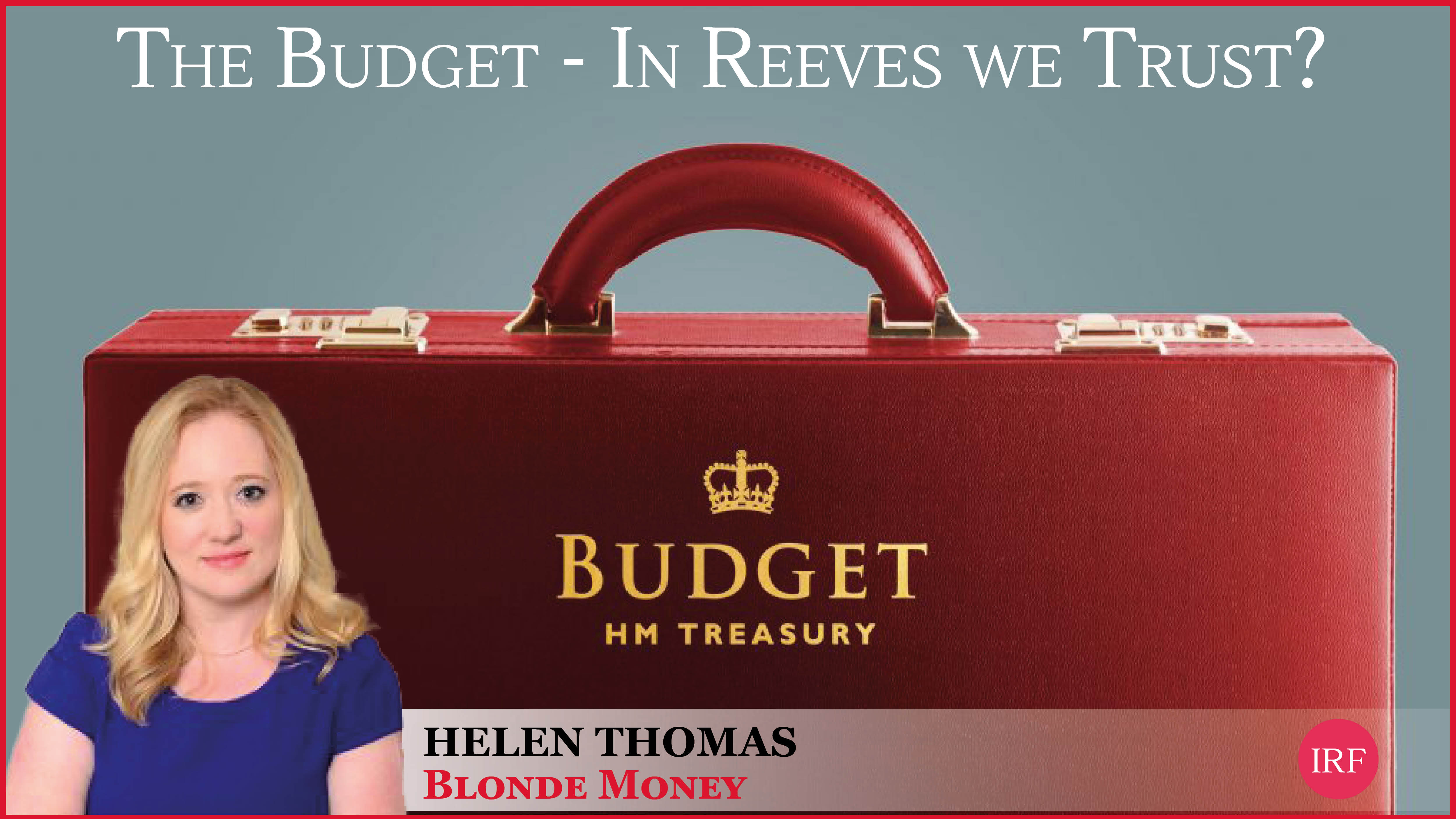The Budget - In Reeves we Trust?
Blonde Money
Wed 23 Oct 2024 - 15:00 BST / 10:00 EDT
Summary
Helen Thomas of Blonde Money presents a three-part analysis of Rachel Reeves’ budget approach, focusing on her ideological foundations, probable budget content, and projected market impact. Thomas examines Reeves’ underlying ideology, shaped by a socialist perspective highlighted in her Mais lecture, where Reeves critiques modern capitalism's failure to enhance growth, democratic engagement, and living standards. Reeves’ outlook distances her from Tony Blair's New Labour approach, which she deems insufficiently bold in addressing labor market insecurity. As a result, her budget framework aims for broader structural change while appeasing both the Office for Budget Responsibility (OBR) and Labour’s diverse coalition.
Thomas emphasizes the OBR's critical influence on Reeves' budget timing and structure. In contrast to typical new governments eager to present a budget, Reeves prioritizes compliance with the OBR’s 10-week forecasting requirement, a response to the credibility crisis instigated by Liz Truss' short-lived fiscal policies. Consequently, Reeves works within OBR constraints, advocating policies that appear financially sound and predictable, while attempting to avoid market turbulence. The recent Investment Summit showcased Britain’s appeal to investors, aiming to secure the OBR’s confidence in Britain’s economic growth projections.
As for the budget’s contents, Thomas anticipates a "Countdown budget," a mix-and-match of policies ranging from bank levies to revised pension tax relief. These are selected to maximize revenue without alienating core voter groups. Expected tax changes include reductions in the tax-free pension lump sum, hikes in capital gains, inheritance tax adjustments, and limited revisions to non-dom status. Reeves avoids radical measures, favoring subtle revenue-boosting adjustments. However, compromises within the Labour Party's ranks highlight internal tensions, with interest groups influencing budget components, resulting in last-minute changes. This, Thomas suggests, risks a "pasty tax" scenario akin to George Osborne's controversial 2012 budget where minor policies unraveled due to public backlash.
Thomas predicts that the immediate market response may involve a slight sell-off in gilts and a potential dip in the pound due to fears of capital flight, though these should stabilize. She forecasts this budget as Labour’s political peak, yet warns that Reeves’ budget approach could limit her long-term political aspirations. With the Conservative Party poised to rally under new leadership, Thomas believes the Labour Party may soon lose its polling edge, suggesting that while Reeves’ budget aims to tread carefully, its reception will have lasting implications on her political career and Labour's hold on power.
Topics
Just how worried is the Gilt market about increased borrowing by the new Labour government?
How can she get any investment going when the fiscal rule doesn’t allow much wiggle room for new borrowing?
On 20th September it was revealed that the debt to GDP ratio hit 100%, the highest since the 1960s
When placed alongside the Fed’s punchy 50bp cut and the ECB’s clear need to keep cutting rates, the BOE looks an outlier. That should mean UK rates would be higher than other G7 nations.
Borrowing is the only lever left - But how much more borrowing is too much for the market to digest?
